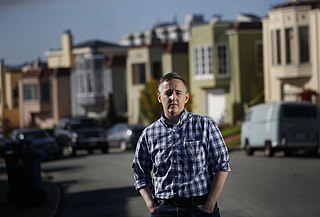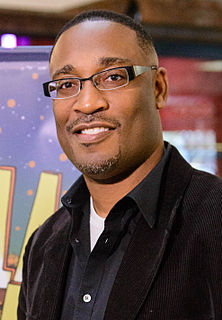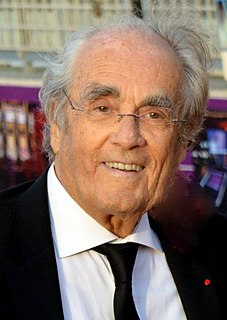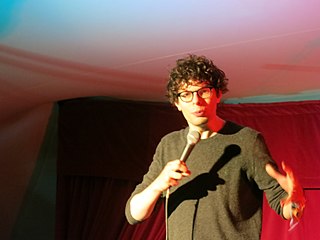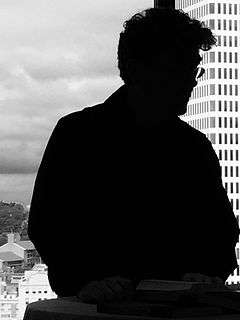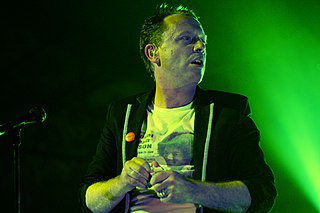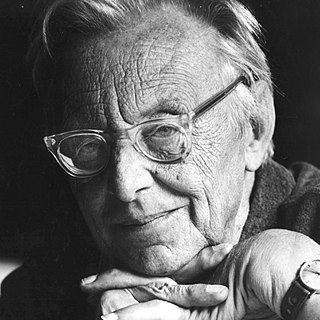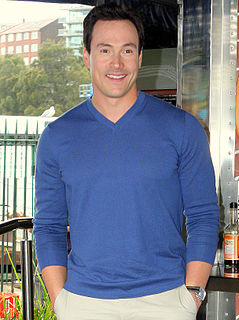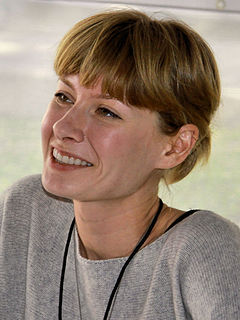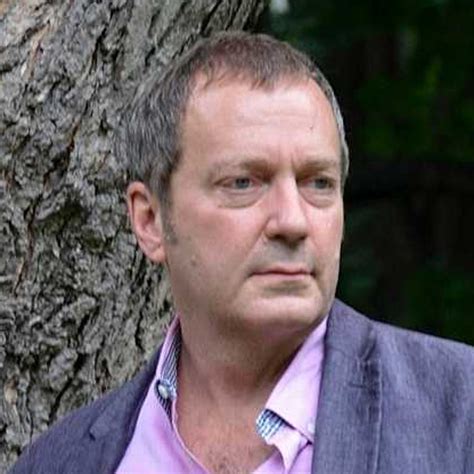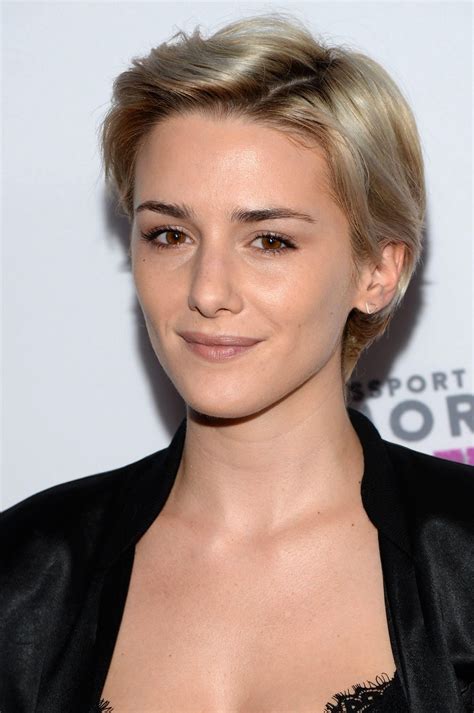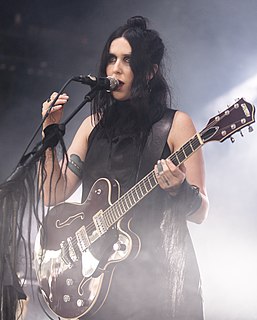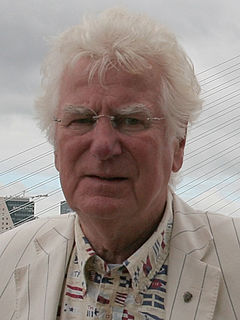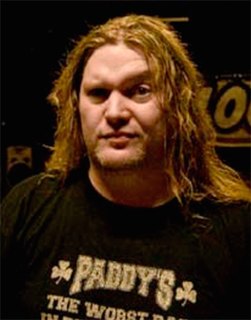Top 960 Recurring Themes Quotes & Sayings - Page 16
Explore popular Recurring Themes quotes.
Last updated on April 21, 2025.
The reason why you do history, and particularly why you do war, is that you want to make sure that in the next war, some lessons were learned. There's a saying: "History doesn't repeat itself, but it does rhyme." Or Ecclesiastes: "What has been will be again. What has been done will be done again." Human nature always superimposes itself - its strength and its frailty over the rush of chaos of ongoing events - and we can perceive patterns and themes and motifs.
One of the many, many things I hate about war is how it trivializes the personal. The big themes, the broad sweep, the emergency measures, the national identity, all the things that a particular kind of man with a particular kind of power urge adores, these are the things that become important. War gives the lie to the personal, drowns it in meetings, alarms, sacrifices. The personal is only allowed to return as death.
Not only did this new pornography industry change the way men look at women and how we relate to sex, how we sell stuff, and not only did it change America's cultural landscape - it's also this incredible metaphor for a market-based economy. The great pyramid scheme that America has become. I felt like in were larger themes in terms of culture and economics that could be addressed.
For me, the whole idea of the radically new is tied to a close reconsideration of older sources. I like to give myself over to those sources, as points of origin, in order to bring things forward. My approach requires me to internalize my sources as much as possible in the hope that new themes might emerge. The material has to be internalized in order for it to live again. Ultimately, paintings reveal themselves on the basis of what they are. They are inseparable from the physical process that goes into their making.
I've been making 16mm urban landscape films about San Francisco for many years. I choose different nonfiction themes to investigate and am generally interested in surfacing lesser-known histories. I like to investigate and illuminate these histories, combining them with my own unconventional storytelling style, which is generally a stream-of-consciousness voiceover involving a steady stream of personal reflections on pining over unavailable women.
This book, 'Free bird', is so entangled with politics. I wanted to channel my own internal political monologue in some way to get it out of my brain. I'm not happy that the themes of the book have become more relevant as the publication date nears. Most of it was written in 2014 or so, before the whole Donald Trump thing began. As people paying attention know, the rise of Trump and Trumpism is not an aberration or sudden kind of phenomena.
One piece of advice I have is: Want something else more than success. Success is a lovely thing, but your desire to say something, your worth, and your identity shouldn’t rely on it, because it’s not guaranteed and it’s not permanent and it’s not sufficient. So work hard, fall in love with the writing — the characters, the story, the words, the themes — and make sure that you are who you are regardless of your life circumstances. That way, when the good things come, they don’t warp you, and when the bad things hit you, you don’t fall apart.
The movie that we could've finished in 2001 would've sucked. The movie that we could've finished in 2002 would've just been a disaster, even into 2003, it would've been very cobbled together, amateuristic stuff. But as we went along, we really did stumble upon some accidental themes, and with the things you could do with computers, and all that sort of stuff just sort of really accelerated into where the stuff that we could do right here at my house became - you could almost do anything.
I just felt like, you know, I read a lot of scripts out in L.A., out here in the industry and I just felt like this film was just being genuine. I just felt like it had really great characters. And all the three different characters have completely different stories and they're all kind of intertwined together thematically. So I just thought it had great characters, great themes
Here is how I work: when I think that a film needs to have a principal theme, I search for a melody. I have a very strange melodic gift: melodies come to me effortlessly. So I write melodies-thirty, forty, fifty-then I cast them off until I have just two or three. If only one is needed, I go see the director and ask him to decide. That happened one time with Jacques Demy for the duo of the twins [in Les demoiselles de Rochefort]: I went to his house in Noirmoutier to play 35 possible themes for him.
First, my frame of reference for the Britten opera shifted. I'd always thought of Britten's approach in Death in Venice as another exploration of the plight of the individual whose aspirations are at odds with those of the surrounding community: his last opera returning to the themes of Peter Grimes. As I read and listened and thought, however, Billy Budd came to seem a more appropriate foil for Death in Venice.
If there's anything to be said in a broad way about different audiences it's that I live in a major city, and those themes of isolation, protectiveness, loneliness tend to resonate with other people in major cities. In a sleepier village, where people are married with their children, me standing up and saying, "This marriage idea is a funny old convention that we invented" - various things that are deconstructions of the norms of a culture - if people have already made decisions like that, they're more inclined to say "Please, stop talking about our marriages, 'cause we're here now."
Poetry restores language by breaking it, and I think that much contemporary writing restores fantasy, as a genre of writing in contrast to a genre of commodity or a section in a bookstore, by breaking it. Michael Moorcock revived fantasy by prying it loose from morality; writers like Jeff VanderMeer, Stepan Chapman, Lucius Shepard, Jeffrey Ford, Nathan Ballingrud are doing the same by prying fantasy away from pedestrian writing, with more vibrant and daring styles, more reflective thinking, and a more widely broadcast spectrum of themes.
You could do much more in movies than you could on TV, and even movies were heavily censored. But in television, the areas of timorousness were fairly laid out. Race relations. Sex. Politics. There was a whole conglomeration of taboo themes. And even to date, though television has become a much freer medium, it's still far less free, far less creatively untrammeled than are the movies. They're infinitely more adult in that respect.
There's probably more of a struggle to get material and narratives published that really speak to black culture. And that has a lot to do with the mergers and buyouts and the corporations being more in control of the purse strings. We find that the projects have to come with higher expectations rather than books that just should be published. That's disturbing because we might find fewer and fewer children's books by African Americans or with black cultural themes.
Some writers find that they don't know their themes until they've finished the first draft (I am one). They then rewrite with an eye toward balancing on that tightrope: not too contrived, not too rambling; does what I'm saying about the world below me actually add up to anything? Other writers pay attention to these things as they write the first draft. Either way, an awareness of the macro and micro levels of theme can provide one more tool for thinking about what you should write, and how.
There is a sort of myth of History that philosophers have.... History for philosophers is some sort of great, vast continuity in which the freedom of individuals and economic or social determinations come and get entangled. When someone lays a finger on one of those great themes--continuity, the effective exercise of human liberty, how individual liberty is articulated with social determinations--when someone touches one of these three myths, these good people start crying out that History is being raped or murdered.
I think if you listen to our records, they come at different points in your life. When people say to me that Stars records have themes, I think what they mean is we write songs - or try to write songs - that are timeless. We try to write songs that catch you at the right time in your life, and that you can hold on to. We write kitchen sink songs. If you're doing the dishes or you're driving to your mom's funeral, or if you're getting over having done MDMA and you feel sad, you can listen to Stars because we're not going to demand of you that you be cool.
It was exciting to work with director Jennifer Baichwal, who made Manufactured Landscapes and others, on the film of Payback: Debt and the Shadow Side of Wealth. It's called, simply, PAYBACK. Jennifer didn't want to do a transliteration of the book, a kind of illustrated version, but to go into the core of the book: owing and being owed, paying and paying back, on all sorts of levels. So she found real-life, visceral stories that embodied the themes of the book.
The subject matter covered in Carmina stays pretty basic: love, lust, the pleasures of drinking and the heightened moods evoked by springtime. These primitive and persistently relevant themes are nicely camouflaged by the Latin and old German texts, so the listener can actually feign ignorance while listening to virtually X-rated lyrics. (Veni Veni Venias! Come, come come now!)The music itself toggles between huge forces and a single voice, juxtaposing majesty and intimacy with ease.
I write first drafts feverishly fast, and then I spend years editing. It's not that sentence-by-sentence perfectionist technique some writers I admire use. I need to see the thing, in some form, and then work with it over and over and over until it makes sense to me - until its concerns approach me, until its themes come to my attention. At that editing stage, the story picks itself and it's just up to me to see it, to find it. If I've done a good job, what it all means will force me to confront it in further edits.
In a way, I feel that we're always connected, maybe you and me, we've been connected - not only now, but before. That's why we've crossed paths. And this manifests beautifully for me in fables, old television, novels in Thailand, but now we try to ignore these themes and stories. That's why now when we make "ghost" films, they have a certain stock quality to their effects, a certain formula, and I miss how it used to be.
After I quit being a lawyer in '95, I was having a lot of trouble writing. Then I read somewhere that Willa Cather read a chapter of the Bible every day before she started work. I thought, 'Okay, I'll try it.' Before each writing session, I started to read the Bible like a writer, thinking about language, character, and themes.
I'm totally into Taylor Swift. I think she has super-clever lyrics, and I love that she writes her own music. Some of the themes she writes about are stuff I wish was there for me when I was in high school, and I'm so happy she really cares about her female fans. She's not catering to a male audience and is writing music for other girls.
I think the universal themes of "American Pie" are what make it attractive to everybody. How to people relate to these characters? It's because these five male characters in this movie wouldn't ordinarily be in the same friend group and they each have their own part to play in the whole thing. There's a character for everybody in this movie that they can relate to... that they either were or knew someone that was. To cover the range like that is pretty unique to our franchise.
In my lifetime I was to write only one book, this would be the one. Just as the past Lingers in the present, all my writings after night, including those that deal with biblical, Talmudic, or Hasidic themes, profoundly bear it's stamp, and cannot be understood if one has not read this very first of my works. Why did I write it? Did I write it so as not to go mad or, on the contrary, to go mad in order to understand the nature of the madness, the immense, terrifying madness that had erupted in history and in the conscience of mankind?
I've discovered that like every writer, I'm helpless MYSELF - and that means I find myself unconsciously or semi-consciously repeating motifs and themes and even using certain words or images recurrently in my work, no matter how much I think I'm starting fresh. But I've always admired artists who made a specific sport of trying to visit different kinds of genres or mediums or modes - not just 'western' or 'detective', but comedy/tragedy, epic and miniature, traditional/experimental.
'Filk' is the folk music of the science fiction and fantasy community - you get parodies, you get traditional music that's had the words slightly modified, and you'll also get just original works that have been written about science fiction and fantasy works, or with science fiction and fantasy themes.
Feminist art is not some tiny creek running off the great river of real art. It is not some crack in an otherwise flawless stone. It is, quite spectacularly I think, art which is not based on the subjugation of one half of the species. It is art which will take the great human themes -love, death, heroism, suffering, history itself -and render them fully human. It may also, though perhaps our imaginations are so mutilated now that we are incapable even of the ambition, introduce a new theme, one as great and as rich as those others -should we call it joy?
What usually happens is that when I'm nearing the end of one novel a vague idea about what I want to do next begins to present itself to me in terms of theme. And I would say over about the next six to eight months, usually as I'm out power walking in the morning, or when I'm cooking at night, or when I'm driving in the car, the people who might embody those themes take on a sharper and sharper focus. And there comes this sort of critical mass moment when they actually start to do things in my head.
Everything I make is with intention. I'm not very haphazard with my artist work, although I wish I was sometimes. I'm very conscious of the conversations I'm pushing about different threads and themes around landscape and characters that exist - how it's pictured, who's pictured it, who's owned it and who's been able to inhabit certain spaces. I have other interests as well. I'm really obsessed now with going to gay male dance clubs. I find those thrilling. I'm interested in what future characters can come.
I'm not writing anything out of some sense of obligation, or for marketing purposes. This is just what I prefer to write. Even though I write mostly for kids, I'm not out to teach a moral lesson or present a guidebook for life. My primary goal as a writer is to create fun, entertaining books that present interesting ideas and themes, so kids can have a break from the stresses of their lives. I got a fan letter once from a girl who said one of my books made her feel good about herself, and if there's anything I'm reaching for, it's that.
That afternoon he told me that the difference between human beings and animals was that human beings were able to dream while awake. He said the purpose of books was to permit us to exercise that faculty. Art, he said, was a controlled madness… He said books weren't made of themes, which you could write essays about, but of images that inserted themselves into your brain and replaced what you were seeing with your eyes.
At least to look back over their own lives, as I have looked back over mine, for certain themes and patterns and signals that are so easy to miss when you're caught up in the process of living them. If God speaks to us at all other than through such official channels as the Bible and the church, then I think he speaks to us largely through what happens to us, so listen to what has happened to you-for the sound, above all else, of his voice.
I am the stereo-typical classic lapsed Catholic. Religious themes crop up in my songs sometimes as metaphors and other kinds of touchstones for getting at issues and "deeper issues," and all that. Right now, honestly, I think all religion is proving itself to be a NET negative on the human race. I recognize its valuable place in individual lives and many larger communities - I know the good that is done in its various names all over the world, but I don't believe in it anymore, and I see the negative aspects dragging us down at a much faster rate than the positive ones are bouying us up.
It was Sci-Fi and fantasy that got me reading, and Sci-Fi writers in particular have pack rat minds. They introduce all sorts of interesting themes and ideas into their books, and so for me it was a short leap to go from the fantasy and Sci-Fi genres to folklore, mythology, ancient history and philosophy. I did not read philosophy because I set out to become a philosopher; I read it because it looked interesting.
McEwan's Atonement…truly dazzles, proving to be as much about the art and morality of writing as it is about the past…. The middle section of Atonement, the two vividly realized set pieces of Robbie's trek to the Channel and Briony's experiences with the wounded evacuees of Dunkirk, would alone have made an outstanding novel…. There is wonderful writing throughout as McEwan weaves his many themes — the accidents of contingency, the sins of absent fathers, class oppression — into his narrative, and in a magical love scene.
Body', 'soul', and 'spirit' may designate phenomenal domains which can be detached as themes for definite investigations; within certain limits their ontological indefiniteness may not be important. When, however, we come to the question of man's Being, this is not something we can simply compute by adding together those kinds of Being which body, soul, and spirit respectively possess--kinds of being whose nature has not as yet been determined. And even if we should attempt such an ontological procedure, some idea of the Being of the whole must be presupposed.
I'm pretty much fixated on certain themes. Family, but it's family of choice as much as family of blood. Individuality, yes, but not at the cost of others' happiness. Be true to your friends. Remembering to find some wonder and hope in the world. Basically it boils down to: treat people like you'd like them to treat you, leave the world a little better than it was when you got here, respect others and stand up for those who can't stand up for themselves.
I think the power of the short film is incredibly underrated. It is way easier to get someone to watch a 15-minute film then a full-length feature. In those 15 minutes you have the opportunity to express your voice as an artist and hopefully connect with your audience. If you are trying to be a first time feature director then a short film that demonstrates you have a grasp on the themes and concepts of the movie you want to direct is a no-brainer. Whether they are collaborators or potential investors, filmmaking is a visual art form so you obviously need visuals to show them!
You can't write a book if you've never read a book. And if you've read five books and you try to write a book, your book will mainly encompass the themes and the context of the five books you've read. Now, the more books you read, the more you can bring to a book when you decide to write one. So the more rap I learned, the more I was able to bring to rap when I decided to rap. But this was all subconscious.
Improvisation in general is good, and improvising material into themes, turning the material into something codified and repeatable, taught me scenic structure and dramatic gambits that work and things that are appealing both as a performer and an audience member, like you know, what does "want" really mean in a scene, and how do you achieve your want, and how is that expressed, and how do you achieve closure? Those are all things that I learned performing at the cabaret after just doing the same scenes over and over and over again over the years, with my own ability to change.
I am really, truly a hopeless romantic, myself, and I am also obsessed with past lives, knowing someone from a past life and knowing that right away, when you meet them. I really believe in inexplicable connections with people, and the way your subconscious enters your dreams. Those are themes in life that I'm really fascinated in.
I think my style changes somewhat. The themes I am interested in exploring are mostly the same, but I tackle them differently. My Younguncle books are at the surface comic adventures of the eccentric title character but they are also serious beneath the fun and frolic. And I use Big Words, like "ambrosial," which bothers some children's book reviewers. The children's short stories you mention are mostly quite serious.
I had seen "Force Majeure" and I just love that movie so much. And I really wanted to artistically give a little hello to the filmmakers, and that kind of back and forth dialogue between artists that say, "I loved your movie. I was influenced by your movie. If I didn't have this job, I wouldn't be thinking of that. Do my TV show and then one day I'll make a movie where I can play with some of the visual themes in "Force Majeure."
I read the reviews sometimes, but I don't let it really affect the next album because, for me, when I approach an album, it's usually coming to me pretty naturally. It's not like I set out, like, "Okay, I'm going to write an album this month." It's more like I'm just always writing songs and eventually I start to realize that a group of songs sort of fits together, and I go from there in putting together the album and themes and artwork and things like that.
"Biblical theology" refers to something more precise than theology that is faithful to the Bible. It might be helpful to draw a contrast: at the risk of oversimplification, systematic theology tends to organize theology topically and with an eye cast on its contemporary relevance, while biblical theology tends to organize the same biblical material so that it is easier to see the distinctive contribution of each biblical book and human author, and to trace the trajectories of themes across the Bible so we see how the books of the Bible hold together.
I don't have one thing I go back to, but we listen to a lot of music in the bus, and we always get a few songs or a few records that end up being themes for the tour. On tour I read all of George Saunders' short stories and all of Alice Munro's short stories. George Saunders is who has taught me about this question about whether or not love is possible in the contemporary world, with all of its simulations and all of its pop and divergences and all of the confusion and distraction. Whether or not contemporary reality is actually hospitable to love.
In his very rejection of art Walt Whitman is an artist. He tried to produce a certain effect by certain means and he succeeded....He stands apart, and the chief value of his work is in its prophecy, not in its performance. He has begun a prelude to larger themes. He is the herald to a new era. As a man he is the precursor of a fresh type. He is a factor in the heroic and spiritual evolution of the human being. If Poetry has passed him by, Philosophy will take note of him.
When I was growing up, I didn't really know much about being popular or cliques or anything like that. In elementary school and middle school, you start to kind of realize what it's all about. There are cool kids, and then there's you, and you're just trying to figure out where you fit in.I learned a lot about acceptance and rejection,Those are the themes that you'll find spread throughout my music and weaved in throughout all of the lyrics. I really know what it's like to be accepted, and I also know what it's like to be rejected. And those are lessons I learned in Wyomissing.
I come from a musical family. Mom was a piano teacher for a large portion of her life, and Dad is a saxophone hobbyist who grew up in England during the heyday of Tubby Hayes and Ronnie Scott. I started taking piano lessons from my Mom, but it's too easy to slack off with your parent, so she passed me on to a friend of hers, where I got more motivated to play music by playing pop hits and TV themes. I did some classical training, but I was always more into the really thematic stuff.
The themes that run through all my work are that consciousness is the ultimate reality; and that by understanding consciousness, you understand everything about yourself, about perception, about creativity, about behavior, about relationships. By understanding consciousness, you have the ability to create anything in your world. And you have the ability to influence also the collective consciousness to not only bring about personal healing, but social transformation, and ultimately healing our planet, which happens to be extremely wounded.
Sometime during the 1990s, when I was teaching philosophy at UCSD, my friend, colleague, and music teacher, Carol Plantamura, discussed the possibility of teaching a course together looking at ways in which various literary works (plays, stories, novels) had been treated as operas, and how different themes emerged in the opera and in its original. One of the pairings we planned to use was Mann's great novella and Britten's opera. Unfortunately, the course was never taught, but the idea remained with me.
What I wanted to do was put a woman of color, front and center, in my movie combining a lot of themes that were relevant to both men and women. I actively wanted her to carry the weight of this movie because I'm a woman. And I actively wanted to explore many of the issues that affected her as a woman of color. That was very important to me. And although these issues affect some women of color, I don't think they're only of interest to women of color. They're of universal interest.
I don't think we really planned it ahead of time but rather oozed out of our pores. All three of the demonstrative themes of Corrosion of Conformity are on there. The Hardcore/Punk from the 80's, the late 80's/early 90's mathy metal and finally the more Pepper, swampy/doomy stuff. We love all three so that's what came out on the album and I think it came out magically.
You don't choose your themes; they choose you. The meaning of your stories will rise out of your deepest longings, often out of longings so deep that you haven't admitted them even to yourself. Your convictions, your confusions, your most passionate dreams will be there whenever you begin a story, so you might as well learn to tap into them.
Being an older person now, I'm finding that people are calling me to play various things. Variations on the theme of mother, caretaker, and in some cases, doctors, heads of organizations and things like that. For some people, I'm finally old enough to play those roles. We see men playing them when they're a little bit younger, and also in roles that call for some form of conflict and violence, either generating it or trying to curtail it. Women don't seem to be a big part of those common and often used movie themes.
In the thirties a whole school of criticism bogged down intellectually in those agitprop, social-realistic days. A play had to be progressive. A number of plays by playwrights who were thought very highly of then - they were very bad playwrights - were highly praised because their themes were intellectually and politically proper. This intellectual morass is very dangerous, it seems to me. A form of censorship.
I wrote 'Turn Your Radio On' in 1937, and it was published in 1938. At this time radio was relatively new to the rural people, especially gospel music programs. I had become alert to the necessity of creating song titles, themes, and plots, and frequently people would call me and say, 'Turn your radio on, Albert, they're singing one of your songs on such-and-such a station.' It finally dawned on me to use their quote, 'Turn your radio on,' as a theme for a religious originated song, and this was the beginning of 'Turn Your Radio On' as we know it.




